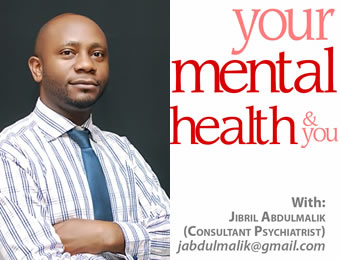

We all pray to grow old, but we should also be cognizant that as we do, we also become more infirm, and begin to experience multiple medical challenges. A particularly troubling one is dementia. What should we do, when a parent or loved one develops dementia?
First, what is dementia?

Dementia is a disease of the elderly that results in a gradual but steady reduction in the brain’s functioning. These functions commonly include memory, judgment, thinking, behavior, and perception. While it is normal and often expected for example, for the elderly to be more forgetful, it is especially worse in dementia – such that the affected person may no longer recognize their spouse or children. Or they may get lost in their own house and no longer know the way to the toilet and keeps ending up in the kitchen when they want to go to the toilet. These changes occur because of the weakening and gradual loss of functions of the nerves of the brain with increasing old age. The most common form of dementia (Alzheimer’s type) is an irreversible condition that progressively worsens over time.
Other problems may include refusal to eat, aggression, irritability, and poor judgment such as coming out of the house undressed, urinating, or defecating on themselves (in advanced cases) e.t.c.
Looking after someone with dementia, what can be done?

The commonest concern from relatives is to get a cure so that everything returns back to normal. But unfortunately, in most instances, once dementia sets in, it is irreversible and cannot be cured. However, it can be managed and made more comfortable through interventions.

The multi-faceted nature of the problems faced by individuals with dementia (and their families) requires a multi-disciplinary approach for the best outcomes. Specialists involved may include consultant psychiatrists or physicians who specialize in the care of the elderly (geriatricians), Nurses, social workers, physiotherapists, occupational therapists, family physicians, social services, etc. Family members are also critical as providers of social support and basic care. Unfortunately, these complement of services are not readily available across the country, and so the burden of providing care often rests squarely on the shoulders of family members who may not even understand what is going on, but are often willing to do their very best for their aged parents.
In most cases, care is best provided within the comfort of their homes, surrounded by their loved ones and family. However, in severe cases where continuous supervision and challenging behaviors are problematic, then nursing homes for the elderly may have to be considered. While this may sound insensitive to many as a result of our cultural sense of responsibility, it may be the only feasible option when the patient is restless and aggressive, refusing medications or food and requiring medical attention nearly all of the time. Furthermore, it is also complicated where they have other medical conditions such as diabetes and/or hypertension- whichrequires not only daily medications but also monitoring of blood pressure and blood sugar levels. Nursing homes are established by qualified and certified nurses to provide extensive,round-the-clock care that includes help with activities of daily living such as bathing, dressing, eating, and supervised exercise and recreation. Furthermore, they also provide medical nursing care such as ensuring medications, monitoring blood pressure and diabetes testing, and keeping charts. Any medical complications will result in a prompt invitation to a physician to come and review and if necessary, adjust medications. Thus, it should be clear that not many families can provide this range of services, where it becomes necessary. If they can, then of course, that will be just perfect.
Looking after yourself as caregivers.
Family members who provide care for their aged, loved ones with dementia need to ensure that they have a roster and the responsibility is shared so it does not overwhelm any single individual. That way, everyone remains invigorated to do more, with frequent time-outs. If there are no family members available to rotate the responsibility, then homes again may be considered for short periods as a form of respite care, while the primary caregivers take short breaks and thereafter, can bring the patient back home. If caregivers don’t look after themselves, they run the risk of emotional exhaustion, depression, and burnout.
Conclusion
The burden of caring for aged parents or loved ones with dementia is a tough responsibility that is especially difficult because it requires 24 hours surveillance and support, every single day of the week, for months and years on end. It is therefore important that the Government provides supportive social services as well as make adequate provisions for dementia care under the National Health Insurance Scheme (NHIS). As we all pray to grow old and see our children’s children, so also should our awareness about the challenges of old age that await us all.








